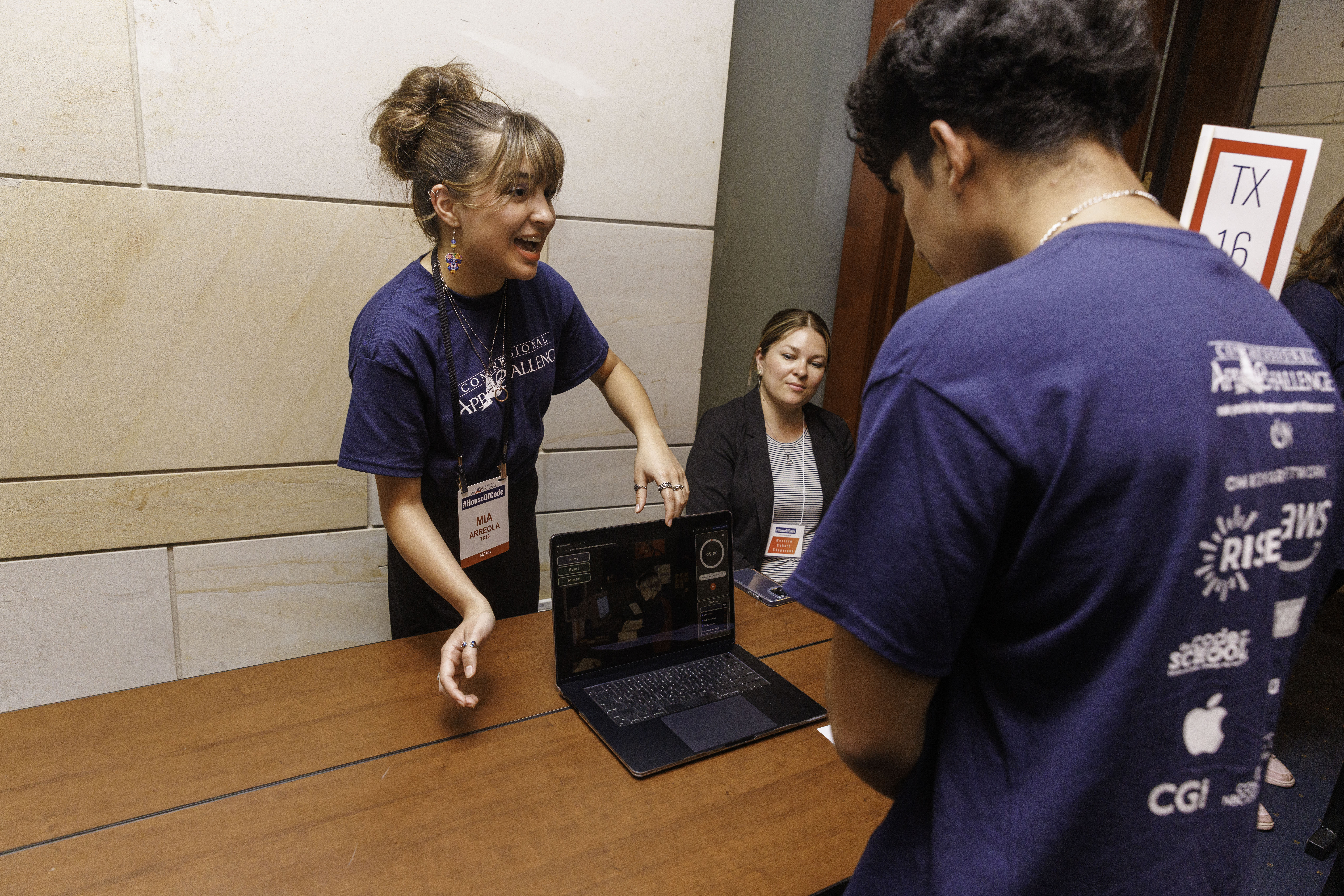As we slip further into a world dominated by technology, careers in computer science have continued to become more and more highly sought after. Add to that the public image of successful tech tycoons like Elon Musk, Jeff Bezos, and Mark Zuckerberg, and it’s no surprise that high school students are often eager to strive toward futures related to CS. However, it’s not necessary that students who want to work in computer science actually major in Computer Science, and it’s important to note that gaining admission to college as a computer science major has become increasingly competitive.
This post explores the reasons a student interested in a career related to computer science doesn't necessarily need to major in it and explains how they can instead focus on acquiring relevant skills and knowledge through various means can be just as effective, if not more so.
Importance of Skills Over Degree Title
The essence of success in computer science careers lies in skills and knowledge. Technology and computer science fields evolve rapidly, and employers are increasingly prioritizing practical skills and the ability to learn and adapt over specific degree titles. Skills such as programming, software development, and an understanding of algorithms and data structures are often cited as essential, but those are skills that can be gained through a few CS courses that students in any major can take. The other skills most often looked for are things like problem-solving, creativity, communication skills, teamwork, and networking: skills not commonly associated with the CS major and often a bit harder to build when majoring in that field.
Elective Coursework in Computer Science
Students who are passionate about computer science but choose or are required to pursue a different major can still immerse themselves in the field through elective coursework. Many institutions offer computer science courses to non-majors, allowing students to gain foundational knowledge and skills in programming, computer systems, and software engineering. This approach enables students to tailor their learning experiences to their interests and career aspirations while still fulfilling the requirements of their chosen major.
Alternative Pathways to Computer Science Careers
Given the competitive nature of computer science admissions, students are encouraged to consider alternative pathways to their desired careers. This can include majors in related fields such as mathematics, physics, engineering, or even areas that may seem unrelated at first glance but offer valuable perspectives and skills, such as design or psychology. Below, I’ve listed eleven majors that are great alternatives on a path toward a career in computer science, and I’ve explained how each contributes to the types of skills related to successful careers in computer science.
1. Mathematics (it’s weird if you say the whole thing. It’s “Math(s),” folks.)
- Problem-solving skills: Math majors develop strong problem-solving abilities, which are crucial for software development, algorithm design, and debugging.
- Understanding of algorithms: Math courses often cover topics such as discrete mathematics and calculus, which provide a foundation for understanding algorithms and computational complexity.
- Logical reasoning: Math requires logical thinking, which is essential for programming and debugging code.
Math is a very diverse field, and there are often a fleet of specializations that students can choose from. Each of the main specializations focuses on a different approach to and use of mathematics, and each of them helps students develop a unique set of skills that could be useful for myriad careers.
Pure Mathematics:
- Pure mathematics deals with abstract concepts and theories, focusing on proving theorems and exploring mathematical structures. Major areas include algebra, analysis, topology, and geometry. Pure mathematicians often work in academia, research, and sometimes in industries that require advanced problem-solving skills.
Applied Mathematics:
- Applied mathematics involves the application of mathematical techniques to real-world problems in various fields such as physics, engineering, biology, and finance. Applied mathematicians use mathematical models and computational methods to analyze and solve practical problems. This field often requires strong skills in differential equations, numerical analysis, optimization, and mathematical modeling.
Computational Mathematics: (this is about computing mathematical figures, not about computers)
- Computational mathematics focuses on the development and implementation of numerical algorithms and computational techniques to solve mathematical problems. It involves a blend of mathematical theory, computer science, and numerical analysis. Computational mathematicians work on problems such as optimization, simulation, and data analysis, often using high-performance computing systems.
Mathematics in Computer Science: (this is the one more heavily focused on math for computers)
- Mathematics plays a fundamental role in computer science, providing the theoretical foundation for algorithms, data structures, cryptography, and machine learning. Areas such as discrete mathematics, graph theory, combinatorics, and number theory are essential in designing efficient algorithms and analyzing computational problems. Math majors with a focus on computer science-related topics are well-equipped to tackle challenging problems in software development, artificial intelligence, cybersecurity, and other tech-driven fields
2. Electrical Engineering:
- Hardware design: Electrical engineering majors learn about circuit design, digital logic, and computer architecture, which are essential for understanding how computers and electronic devices work.
- Systems architecture: Understanding the architecture of computer systems helps in designing efficient software and optimizing performance.
- Embedded systems: Electrical engineering provides knowledge of embedded systems, which are prevalent in devices like smartphones, IoT devices, and automotive systems.
3. Physics:
- Analytical skills: Physics majors develop strong analytical skills, which are valuable for solving complex problems in computer science, such as simulations and modeling.
- Computational physics: Physics courses often involve computational simulations, which can be applied to areas like data analysis, computational biology, and materials science.
4. Statistics
- Data analysis: Statistics majors learn techniques for collecting, analyzing, and interpreting data, which are essential for roles in data science, machine learning, and business intelligence.
- Probability theory: Understanding probability is crucial for designing algorithms, predicting outcomes, and assessing risk in computer systems and applications.
5. Information Systems
- Business acumen: Information systems majors learn about the integration of technology and business processes, preparing them for roles in IT management, consulting, and project management.
- Systems analysis: Information systems courses cover topics such as requirements analysis, system design, and implementation, which are applicable to software engineering and development.
6. Cognitive Science
- Human-computer interaction: Cognitive science majors study how humans perceive, interact with, and understand technology, which is valuable for designing user-friendly interfaces and improving the user experience.
- Artificial intelligence: Cognitive science intersects with artificial intelligence, providing insights into how to design intelligent systems that mimic human cognition.
7. Economics
- Economic analysis: Economics majors learn about market dynamics, pricing strategies, and economic models, which are relevant to roles in tech companies, finance, and data analysis.
- Decision-making: Understanding economic principles helps in making strategic decisions related to product development, resource allocation, and market positioning.
8. Linguistics
- Natural language processing: Linguistics majors study the structure and rules of language, which is essential for developing algorithms and models for natural language processing tasks such as speech recognition, machine translation, and sentiment analysis.
- Computational linguistics: Students learn how to apply computational techniques to analyze and understand language data, making them well-suited for roles in text mining, information retrieval, and language technology.
9. Graphic Design
- User interface (UI) and user experience (UX) design: Graphic design majors learn principles of design, typography, and visual communication, which are valuable for creating visually appealing and user-friendly interfaces for software applications and websites.
- Front-end development: Understanding design principles helps in implementing UI/UX designs and creating responsive and interactive user interfaces using web technologies like HTML, CSS, and JavaScript.
10. Biology/Bioinformatics
- Computational biology: Students learn how to apply computational techniques to analyze biological data, such as DNA sequences, protein structures, and biological networks, which is valuable for research in bioinformatics, genomics, and drug discovery.
- Data analysis: Biology majors gain skills in data analysis, statistical modeling, and visualization, which are useful for processing and interpreting large-scale biological datasets.
11. Psychology
- Human behavior analysis: Psychology majors study human behavior, cognition, and emotions, providing insights into how users interact with technology and informing the design of user interfaces and user experiences.
- Human-computer interaction (HCI): Understanding psychological principles helps in designing intuitive and user-friendly interfaces, conducting usability testing, and improving the overall user experience of software applications and digital products.
Conclusion
In conclusion, while a Computer Science major remains a popular choice, success in the field isn't limited to traditional paths. By focusing on acquiring skills through elective coursework or pursuing majors in related fields, aspirants can forge unique paths to success. The world of technology awaits contributions from those who dare to explore beyond the ordinary.
About Us: With more than twenty years of experience, Collegewise counselors and tutors are at the forefront of the ever-evolving admissions landscape. Our work has always centered on you: the family. And just like we’ve always done, we look for ways for your student to be their best self - whether in the classroom, the applications, or in the right-fit college environment. Our range of counseling, test prep, academic tutoring, and essay management, all with the support of our proprietary platform, lead to 4x higher than average admissions rates.




.jpg)
